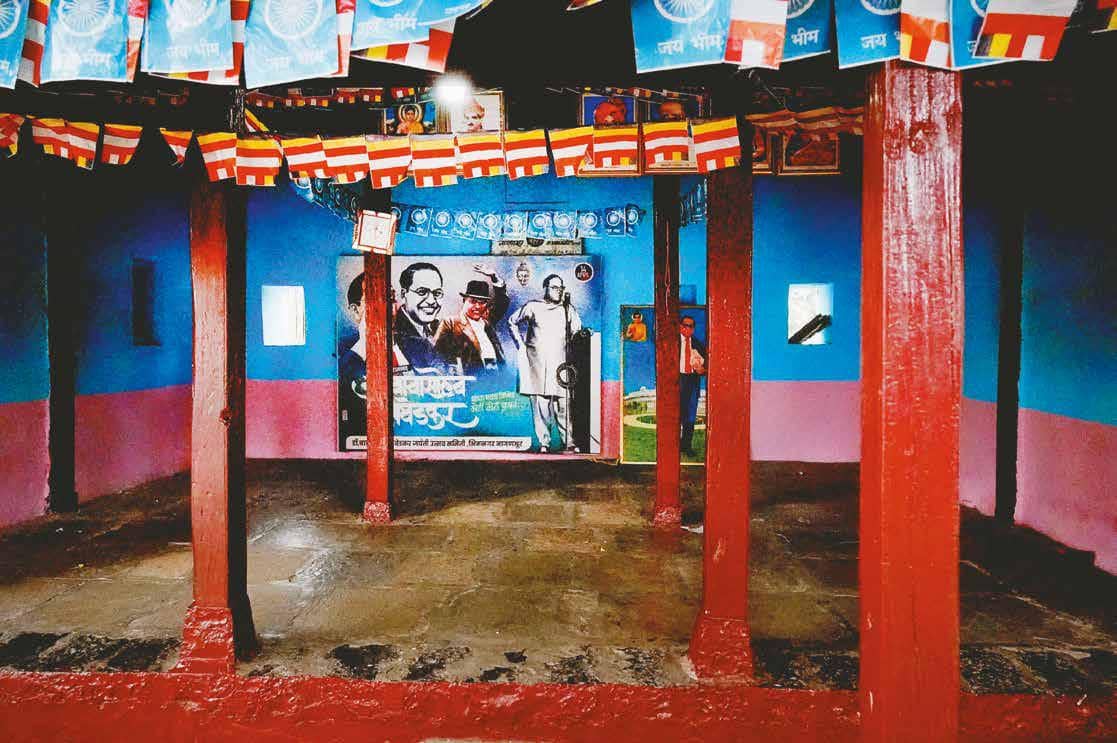
SANTOSH Nagoji takes a deep breath and walks toward the hole-in-the-wall men's salon on a Thursday evening. He needs a haircut but dares not enter the 10 x 10 sq feet parlour, painted with pink walls, and take up the empty seat next to two customers. He knows what the barber's response will be. Standing at a distance from the salon's threshold, he still curtly asks, “Kesa kapnar ka (will you give me a haircut)?"
The hairdresser is about to nod when a customer getting a facial stops him. Taking one look at Nagoji he coldly says, "Dalit aahe toh (he is a Dalit)."
In most places, barber shops serve as a space for grooming, hygiene, occasional gossip, and social interaction. For Nagoji a well-built 33-year-old from the Mahar caste, who works on contract as a delivery driver in Mumbai, it is an everyday place of exploitation, discrimination, and humiliation. A place to avoid, a no-go zone.
"No haircut for Dalits," a strictly enforced caste-based prohibition, is a custom, zealously practised in the village of Nagansur, Tondlur, Navindagi and others in Solapur's Akkalkot taluka on the Maharashtra-Karnataka border. The dominant caste of Lingayats-a politically strong community-maintains an upper hand over the scheduled castes of Mahars, Matangs, Dhor and Chambhar living in these villages. In Nagansur of the 8500-odd population, Lingayats constitute the majority and only 1500 are scheduled castes and tribes. They treat members of Other Backward Castes (OBCs) and Muslims as relatively equal citizens. Dalits, however, are ostracised; haircuts in barber shops being one of the examples.
This practice is one of the 400-odd documented forms of untouchability followed in different parts of the country, as per Ghanshyam Shah edited 2006 book, Untouchability in Rural India.
This story is from the {{IssueName}} edition of {{MagazineName}}.
Start your 7-day Magzter GOLD free trial to access thousands of curated premium stories, and 9,000+ magazines and newspapers.
Already a subscriber ? Sign In
This story is from the {{IssueName}} edition of {{MagazineName}}.
Start your 7-day Magzter GOLD free trial to access thousands of curated premium stories, and 9,000+ magazines and newspapers.
Already a subscriber? Sign In

Layers Of Lear
Director Rajat Kapoor and actor Vinay Pathak's ode to Shakespeare is an experience to behold

Loss and Longing
Memories can be painful, but they also make life more meaningful

Suprabhatham Sub Judice
M.S. Subbulakshmi decided the fate of her memorials a long time ago

Fortress of Desire
A performance titled 'A Streetcart Named Desire', featuring Indian and international artists and performers, explored different desires through an unusual act on a full moon night at the Gwalior Fort

Of Hope and Hopelessness
The body appears as light in Payal Kapadia's film

Ruptured Lives
A visit to Bangladesh in 2010 shaped the author's novel, a sensitively sketched tale of migrants' struggles

The Big Book
The Big Book of Odia Literature is a groundbreaking work that provides readers with a comprehensive introduction to the rich and varied literary traditions of Odisha

How to Refuse the Generous Thief
The poet uses all the available arsenal in English to write the most anti-colonial poetry

The Freedom Compartment
#traindiaries is a photo journal shot in the ladies coaches of Mumbai locals. It explores how women engage and familiarise themselves with spaces by building relationships with complete strangers

Love, Up in the Clouds
Manikbabur Megh is an unusual love story about a man falling for a cloud. Amborish Roychoudhury discusses the process of Manikbabu's creation with actor Chandan Sen and director Abhinandan Banerjee